Unconventional language hacking tips from Benny the Irish polyglot; travelling the world to learn languages to fluency and beyond!
Looking for something? Use the search field below.
Home » Articles » 60+ Essential French Phrases for Beginners to Start Speaking Now
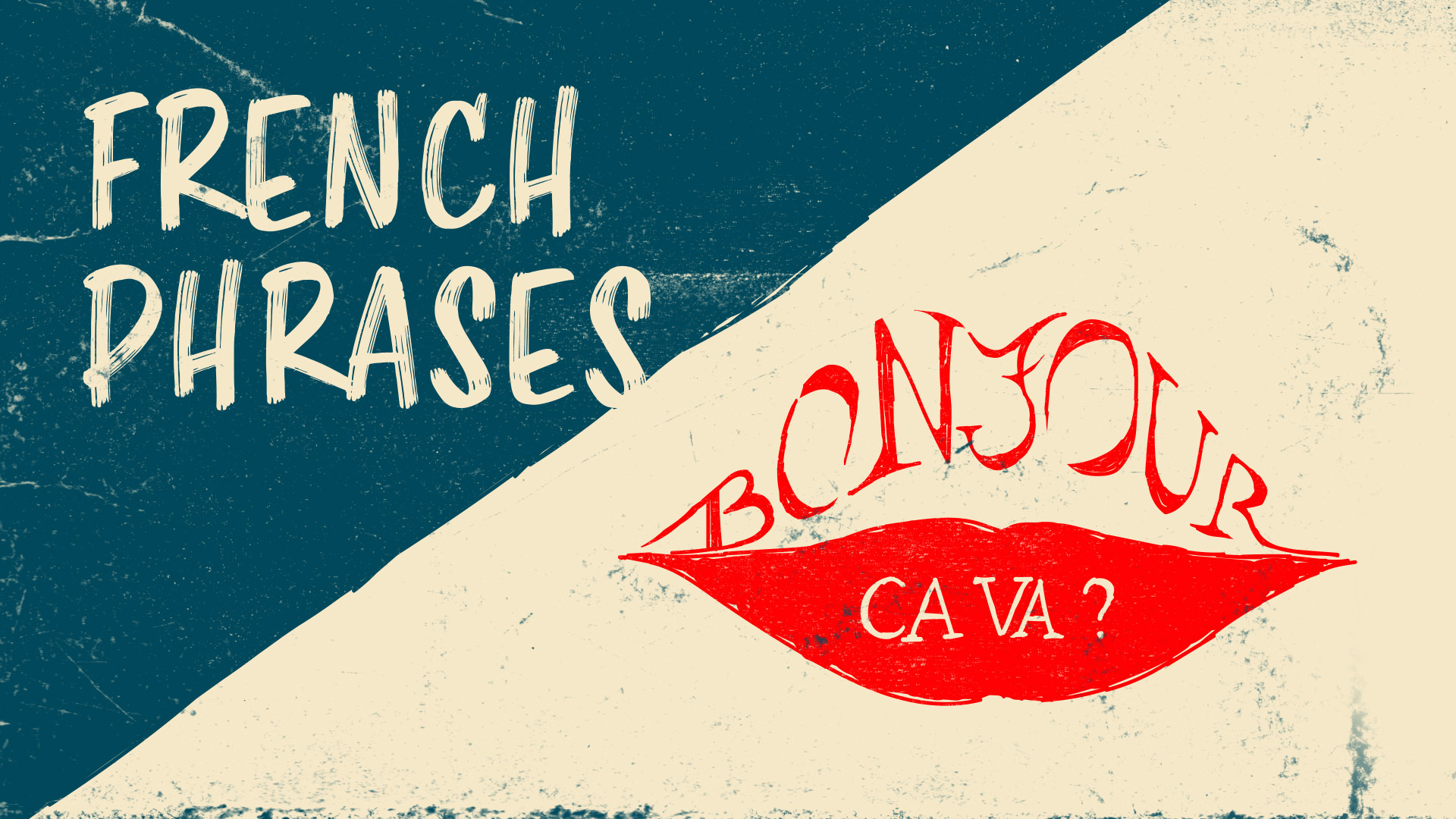
Full disclosure: This post contains affiliate links. ?
written by Benny Lewis
Language: French
Reading time: 18 minutes
Published: Jan 11, 2021
Updated: Jun 6, 2024

60+ Essential French Phrases for Beginners to Start Speaking Now
What are some French sayings? What are the most common phrases in French? And can learning a few powerful French phrases really help you start speaking right away?
Absolutely!
Even if you'll only be spending a short time in the country, learning a few basic French phrases can be very rewarding and make a big difference to your trip.
Let’s start by mastering some of the most common French phrases you need to know as a beginner:
I've long advocated that set phrases are the best thing for beginners to learn when starting out.
After all, isn't the goal of language learning to communicate?
How do you expect to communicate with anybody if the only thing you've learned so far is a verb table?
So whether you're planning to travel to Paris for a week or move to Saint-Louis-du-Ha! Ha! for the rest of your life, here are the most important and useful French phrases that you should learn A.S.A.P.
Listen to the French Phrases:
Here's a quick “French phrases” video I made that will help you with pronunciation for most of the phrases in this article:
Before we get started, if you’re looking for an online French course, here’s the course I recommend: French Uncovered – Learn French Through the Power of Story, a course with a fascinating new method by my friend Olly.
French Greetings and Polite Phrases
Bonjour – “hello”.
There are many ways in French to say “hello” , but bonjour is undoubtedly the most well-known. It's universally polite and friendly, whether the situation is formal or informal.
Bonjour is a combination of the words bon (“good”) and jour (“day”).
In the evening, you could also say bonsoir (“good evening”). A more casual way to greet people is salut , which can mean either “hi!” or “bye!”.
S'il vous plaît / s'il te plaît – “Please”
As a tourist, the last thing you want to be is rude. So when in France, remember what your mother taught you, and say s'il vous plaît (“please”) when making a request.
You can also say s'il te plaît. What's the difference? It's all about “you”:
In French there are two ways of saying “you”.
Tu is what you'd use when addressing a friend. Vous is a more polite and formal version, best used when talking to a stranger or older person.
( Vous is also what you should use when addressing a group of people in any situation, similar to saying “you guys” or “you all” in English).
So s'il vous plaît and s'il te plaît both mean “please” (literally, “if it pleases you”), but s'il vous plait is the more polite version. If in doubt, use s'il vous plaît .
(Why is it s'il te plait and not s'il tu plait ? It's a grammatical thing that you don't need to worry about as a beginner. Just learn the phrase as a whole for now, and things will become clear later.)
In fact, when asking for something in French – e.g. asking a stranger for directions or asking to see a menu in a restaurant, you should start with “ Bonjour. S'il vous plaît… ” It literally means “Hello, please…”, which would sound a bit strange in English, but it's the normal way to start a polite request in French.
Comment vous appelez-vous? / Comment t'appelles-tu? – “What’s your name?”
When meeting anyone, one of the first things you'll want to know is their name.
In French, you can find it out by asking “ Comment vous appelez-vous? ” (formal) or “ Comment t'appelles-tu? ” (informal).
Literally, these questions mean “what do you call yourself?”. You could also ask “ c'est quoi ton nom? ” – which is a more literal translation of “what's your name?”
If you're on the receiving end of this question, answer with “ Je m'appelle… ” (“my name is”, literally “I call myself”) or a simple “ Je suis… ” (“I am…”).
Oui/Non/Si – “Yes/No”
Two essential words to learn in any language are “yes” and “no”. In French, “yes” is oui and “no” is non .
Informally, it's also common to say ouais or ouaip instead of oui – like saying “yeah” or “yep” in English.
Then you have si . This is a handy little word that has no direct equivalent in English. Use it to say “yes” when someone asks you a negatively phrased question.
To illustrate what I mean, imagine that someone asks you, in English, “haven't you been to Paris?”
If you reply “yes”, it's not exactly clear what you're saying. Do you mean “yes, I have been to Paris – contrary to your assertion” or “yes, you're correct: I haven't been to Paris”?
French avoids this confusion with the word si . It means “yes”, but more specifically it contradicts the assertion in the question. In the above example, if you say si , it clearly conveys that you have, in fact, been to Paris.
Si is one of many linguistic features that I sorely miss when I speak English.
Comment allez-vous? – “How are you?”
This is the polite way of saying “how are you?” in French. Note the use of the polite vous rather than the informal tu .
Another, more informal way to say “how are you?” is ça va ? This phrase is extremely common – when in France you'll likely hear it several times per day.
If someone asks you “ ça va? ”, you can respond with a simple “ ça va bien ” – “it's going well”.
Excusez-moi – “Excuse me”
To get someone's attention, whether they're a waiter in a restaurant or a stranger on the street, say “ excusez-moi ”, “excuse me”.
This is also the polite way to ask someone to get out of your way. For example, if you're trying to exit a crowded train, a soft “ excusez-moi ” should (hopefully) be enough to make people step aside.
Pardon – “Sorry”
Picture getting off a crowded train, being careful you don't bump into anyone as you walk through the crowded metro station. But if a collision does occur, it's fine. Just say pardon , “sorry”, and all will be forgiven.
“ Pardon? ” is also how you'd ask someone to repeat themselves if you didn't hear or understand what they said. In this case, you should say it with a rising tone to indicate that it's a question.
Another way to say this is “ pourriez-vous répéter, s’il vous plaît ?” – “Could you repeat, please?”
Merci beaucoup – “Thanks a lot”
And of course, don't forget to say thank you!
The French word for “thank you” is merci . Or you can make it stronger by saying merci beaucoup – “thanks very much”.
Use merci in all the same situations you'd say “thank you” in English.
Other Must-Know French Greetings and Polite Phrases:
- Nice to meet you – Enchanté
- How’s it going? – Comment ça va?
- And you? – Et toi?
- Are you well? – Vous allez bien?
- What’s new? / What’s up? – Quoi de neuf?
- Good, thanks! – Bien, merci!
- So-so / It’s okay – Comme ci, comme ça (Literally: “like this, like that”)
- Same as always – Comme d’hab
- It could be worse – Ça pourrait être pire
- You’re welcome – Je t'en prie
- Don’t mention it / You’re welcome – De rien
- Goodbye – Au revoir
- See you soon – À bientôt!
French Phrases for Maintaining a Conversation
Je voudrais parler français – “i would like to speak french”.
The French are famously protective of their language. Sometimes they can be a bit impatient with us anglophones, and reply in English to your imperfect French questions.
It's frustrating when this happens, but if you ever want to make progress in a foreign language, you absolutely must stop speaking English !
Be polite but firm when someone tries to speak English with you – tell them “ Je voudrais parler français ” – “I'd like to speak French.”
Note that, unlike in English, names of languages are not written with a capital letter in French.
Je ne comprends pas – “I don’t understand”
Sometimes pardon doesn't quite cut it. If you really can't figure out what the other person is saying, try telling them “ je ne comprends pas ” – “I don't understand.”
There's no shame in being a beginner! Just remember not to fall back to English when the going gets tough. If you don't understand something, persevere in French anyway – it's the only way you'll learn.
Que veut dire ça? – “What does that mean?”
Maybe the reason you didn't understand is because there was a specific word you didn't recognise. If that's the case, say “ que veut dire X? ” – “What does X mean?”
You can also phrase this as “ ça veut dire quoi? ” – “What does that mean?”
Plus lentement – “More slowly”
Sometimes, vocabulary isn’t the problem. You’d know the words if you could make them out, but you can't because the other person is talking too fast!
In this case, try saying plus lentement – “more slowly”.
Better yet, say a full sentence: “ Pourriez-vous parler plus lentement, s’il vous plaît? ” – “Can you speak more slowly, please?”
Comment dit-on __ en français? – “How do you say __ in French?”
What if you need to say something in French, but the exact word escapes you?
Just fill in the blank in the above sentence: “ Comment dit-on X en français? ” means “How do you say X in French”?
A side note: the pronoun on , seen above, is an interesting one. It’s a colloquial alternative to nous (“we”). However, on is also used to refer to an unspecified person or people in general, like the word “one” is sometimes used in formal English. (If you speak German, note that on in this sense is like the German word man .)
One doesn't use the word “one” very much in modern English – one finds it rather old-timey and stuffy. These days you normally use “you” when you're talking about people in general.
Comment ça s'écrit? – “How do you spell that?”
If you learn a new French word using the phrase above, you might want to write it down before you forget it.
Unfortunately, French spelling isn't the easiest.
The relationship between spelling and French pronunciation can be complicated. Generally, it's easier to figure out a word's pronunciation from its spelling than it is to know its spelling from its pronunciation. I wrote a guide to help you with French pronunciation here .
So if you're not sure, ask someone “ comment ça s'ecrit? ” – “How do you spell that?” Literally: “How does that write itself?”
Or if you don't trust your own transcription abilities, try asking them to write it for you: say “ Est-ce que vous pouvez l'écrire? ” – “Can you write it (down)?”
Other Helpful Phrases for Maintaining a French Conversation:
- Can you speak more slowly please? – Pouvez-vous parler plus lentement s'il vous plaît?
- Can you say it one more time? – Pouvez-vous le dire une fois de plus?
- Do you speak French? – Parlez-vous français?
- Do you understand? – Comprenez vous?
- What do you do for a living? – Qu’est-ce que tu fais dans la vie?
- How old are you? – Quel âge as-tu?
- I’m _ years old – J’ai _ ans
- Where are you from? – D'où êtes-vous?
- I’m from… – Je viens…
- Are you married? – Es-tu marié?
- Are you single? – Es-tu célibataire?
- When can we meet? – Quand pouvons-nous nous rencontrer?
- What’s your phone number? – Quel est ton numéro de téléphone?
French Phrases for Getting Around
Où est… – “where is…”.
Struggling to find your way around? Not to worry. Just get a stranger's attention (remember what phrase would you use to do this?) and ask “ où est X ” – “Where is X?”
“X” could be many things: la Tour Eiffel, le Louvre, Notre Dame … or perhaps something less exotic, like le metro or un restaurant .
Où se trouve la station de métro la plus proche? – “Where is the closest metro station?”
Another way of saying “where is it?” is où se trouve , literally “where is (it) found”.
Here's an example of où se trouve combined with another handy phrase to know: la station de métro la plus proche means “the closest metro station”.
One more piece of useful vocabulary: once you're in the metro station, you might want to ask someone “ où est le guichet? ” – “Where is the ticket window?”
Je voudrais acheter un billet – “I would like to buy a ticket”
Now that you've found the guichet , you probably want to buy a billet – a ticket. But what type of ticket do you want?
- un billet aller simple – a one-way ticket
- un billet aller retour – a round-trip ticket
Make your decision, and tell the assistant “ je voudrais un billet aller simple/retour pour X ” – “I would like to buy a one-way/round-trip ticket to X”, where X is your destination.
C'est combien? – “How much is it?”
France isn't the cheapest of countries – so whether you're at the guichet or elsewhere, it doesn't hurt to be price-conscious.
To ask how much something costs, say “ c'est combien? ” – “how much is it?” You can also say “ Combien ça coûte? ” – literally, “how much does it cost?”
Où sont les toilettes? – “Where are the toilets?”
It's worth learning this phrase, because you might need it in a hurry! Où sont les toilettes means “where are the toilets?”
Although if you want to use a public toilet, you could be searching for a long time.
They aren't very common in France – and if you do find one, you'll probably have to pay to use it. You're probably better off buying something in a café and using their toilets instead.
(Why is it “ où sont “, when previously we used “ où est “? Easy: sont means “are” while est means “is”. Since toilettes is plural, you must use sont , not est – “where are the toilets?”, rather than “where is the toilets”, which wouldn’t make sense.)
À quelle heure est-ce qu’il faut régler la note? – “What time is check out?”
If you're checking into a hotel in a French-speaking country, one useful thing to know the checkout time.
One way to find this out is to ask “ à quelle heure est-ce qu’il faut régler la note? ” – “What time must we check out?”
Another similar expression is: “ quelle est l'heure limite d'occupation? ” (Lit: “What is the occupancy cut-off time?”
La carte/le menu, s’il vous plaît. – “The menu, please.”
France is famous for its food, so while you're there, you'll probably want to dine in a restaurant or two!
When dining out in any language, there are usually a few subtleties around how to order. Here I'll explain one of the more important things to know in French: the words for “menu”.
I say “words” because there are two main ways to say “menu” in French.
The general word is carte , which you may recognise from the expression à la carte .
A carte is what you typically think of when you hear the word “menu”. It's a list of individually-priced options; you pick and choose what you want, then add up the prices to get your total bill.
But you can also ask for a menu , which is usually called a “fixed-price menu” in English. When ordering from a menu , you pick an option for each course (starter, main course, etc.) and pay the same, fixed price no matter what you selected.
Whichever option you choose, inform the serveur/serveuse (“waiter/waitress”) by saying “ la carte/le menu, s’il vous plaît ” – “the menu/fixed-price menu, please.”
Je ne peux pas manger… – “I can’t eat…”
This doesn't apply to everybody, but for those to whom it does apply, it's very important: informing the waiter about your dietary restrictions.
The simplest way to do this is to say “ je ne peux pas manger de X ” – “I can't eat X”. Here are some of the more common ways to fill in the blank:
- cacahuètes – peanuts
- noix – nuts
- gluten – gluten
- fruits de mer – shell fish
- œufs – eggs
- poisson – fish
- produits laitiers – dairy products
- viande – meat
If you're vegetarian, say so with “ je suis végétarien ” (for men) or “ végétarienne ” (for women.)
A vegan is a “ végétalien(ne) “, although végan/végane is sometimes used too.
You could also explain “ je ne consomme pas de produits animaux .” – “I don't consume animal products”
Nous voudrions commander maintenant. – “We would like to place an order now.”
To “order” in French is commander , when you're talking about ordering something in a restaurant.
Don't confuse this with ordonner , which is used in the sense of “to order a person to do something”, such as in the military.
After receiving the carte or the menu , and perhaps informing the waiter of your dietary restrictions, you may be given some time to make a decision. When you're ready, say “ nous voudrions commander maintenant ” – “we'd like to order now.”
It’s also acceptable in nearly any restaurant to use on instead of nous for we, as I mentioned earlier: On voudrait commander maintenant.
Or if you're by yourself, say je voudrais (I'd like) instead of nous voudrions (we'd like). Bon appétit!
L’addition, s’il vous plaît. – “The bill, please”
One final bit of restaurant-related vocabulary – the bill (or “check” if you're American) is l'addition .
So when you're ready to leave, say l’addition, s’il vous plaît – “the bill, please”.
You’ll often hear la facture used in Quebec instead of l’addition – however both are perfectly understandable to waitstaff.
Other French Phrases for Out and About in France:
- Can you help me please? – Pouvez-vous m'aider s'il vous plaît?
- I would like… – Je voudrais…
- I’d like one of those please – J'en voudrais un s'il vous plait
- Three: Trois
- Four: Quatre
- Five: *Cinq
Learn more: French Numbers: Counting in French from 1 – 100+
Romantic French Phrases
Je t'aime – “i love you”.
Finally, let’s talk about love.
They say that French is a romantic language, so maybe in your travels you'll find love on the road? Or maybe after you get home, you'll want to use your newfound French skills to woo that special someone.
So how do you say “I love you” in French?
The French word for “to love” is adorer – but you generally only use this word when talking about things rather than people, for example to say that you love a place, book, or song.
When talking to a person, say je t'aime . Aimer usually means “like”, but in this context it means “love” in the most romantic of senses. Use it wisely!
Here are some other romantic French phrases:
- My heart – Mon cœur
- My love – Mon amour
- You’re beautiful – Tu es belle (to a woman); Tu es beau (to a man)
- You’re too cute – Tu es trop mignon
- I like you (Lit: “You please me”) – Tu me plais
Bonus: French Slang
Wondering what a famous French saying is that you could use in everyday life? Or how do you say “cool” in French slang?
Here are some bonus French sayings and slang to level up your French:
- Cool – Cool (yes, really! Just say it with a French accent 😉)
- Awesome – Génial
- That sucks – C’est nul
- That’s great – C’est top
- Don’t worry – T'inquiète
- Losing my mind – Perdre la tête
Over to You
Can you think of any other useful French phrases for tourists? What are the most important words and phrases for beginners to know? Let us know in the comments.
And if you’re ready to learn more French, check out the 111 core French words that are commonly used. Or learn some more fun French slang !
Benny Lewis
Founder, Fluent in 3 Months
Fun-loving Irish guy, full-time globe trotter and international bestselling author. Benny believes the best approach to language learning is to speak from day one .
Speaks: Spanish, French, German, Italian, Portuguese, Esperanto, Mandarin Chinese, American Sign Language, Dutch, Irish
Have a 15-minute conversation in your new language after 90 days
You are using an outdated browser. Please upgrade your browser or activate Google Chrome Frame to improve your experience.
108 French Travel Phrases
Having essential French travel phrases on hand can totally transform your trip. If you meet people, get lost or just need to ask a local some questions , these expressions and sayings will help you out in most scenarios and make your time in France truly memorable.
I’ll introduce you to 108 basic French phrases for travelers, as well as tips and cultural context so they’re easier to memorize ahead of time.
Common French Words and Phrases
French phrases to introduce yourself, questions for traveling in france, french for getting around, clarifying french phrases, basic french phrases for shopping, phrases for dining out in french, french words for a night out, how to prepare for traveling to france, and one more thing....
Download: This blog post is available as a convenient and portable PDF that you can take anywhere. Click here to get a copy. (Download)

Let’s start with the absolute basics.
Bonjour (Hello) Add a monsieur (sir) or madame (ma’am) to be polite.
Salut ! (Hi/Hey!) This is a more casual version of “hello.” You’ll hear the young folks throwing this one around.
Au revoir (Goodbye)
À plus / À plus tard ! (See you/See you later!)
À la prochaine ! (See you next time!)
Bisous / Bises ! (Kisses!) This is a casual way to say goodbye.
Bonsoir (Good evening)
Bonne journée ! ([Have a] good day!)
Bonne soirée ! ([Have a] good evening!)
Vous me manquez déjà ! (I miss you already!)
Pardon (Excuse me)
Merci (Thank you)
S’il vous plaît (Please)
Excusez-moi monsieur / madame (Excuse me sir/ma’am)
Parlez-vous anglais ? (Do you speak English?)
Comment dit-on … en français ? (How do you say … in French?)

These phrases will help you out when meeting locals and trying to make French-speaking friends.
Je m’appelle… (My name is…)
Moi, c’est… (Me, I’m…) This is a more casual way of introducing yourself.
Comment vous appelez-vous ? (What is your name?)
Tu t’appelles comment ? (What’s your name?) Use this one for when you want to keep things casual, with the tu form .
Comment allez-vous ? (How are you?)
Ça va ? En forme ? (How are you? You good?)
Nous sommes arrivés / arrivées… (We arrived…) Use this phrase to let someone know when you got into town.
Nous restons… (We’re staying…) Use this phrase to explain to your new friends where you’re staying, as well as how long you’re staying.
Je vous présente… (lit. “I present you…”) This is another way of saying “This is [my]…” when you want to introduce two people to each other.
Enchanté/Enchantée. (Pleased to meet you.)
Je suis ravi / ravie de faire votre connaissance. (I am glad/delighted to meet you.) You’ll raise some impressed eyebrows if you bust out this fancy French “nice to meet ya.”
Je parle un peu français. (I speak a little French.)
If you’re learning French, chances are you’ll want to practice your language skills when you go out there. However, it can be intimidating approaching a native—letting them know that you’re not fluent will really put your mind to rest!
Saying je parle un peu français will enable you to continue practicing your speaking skills, while at the same time alleviating any pressure you might feel to talk fluently. Use this phrase when you’re first starting a conversation, or want to continue talking to someone in French.
J’apprends le français depuis… (I’ve been learning French for…)
People are sure to notice your French accent and they’ll probably want to know how long you’ve been learning the language of love.
Je suis là pour les vacances / le travail. (I’m here for vacation/work.)
After you’ve made your initial introductions, it’s likely that a person with whom you’re speaking will ask about the time you’re spending in France. While many people travel to the country for vacation, this isn’t always the case, so informing the other person of your reasons for traveling can help fuel the conversation you have.
It’s likely that the other person will want to expand on the topic, so having a few words ready about your future itinerary or your job wouldn’t go amiss.
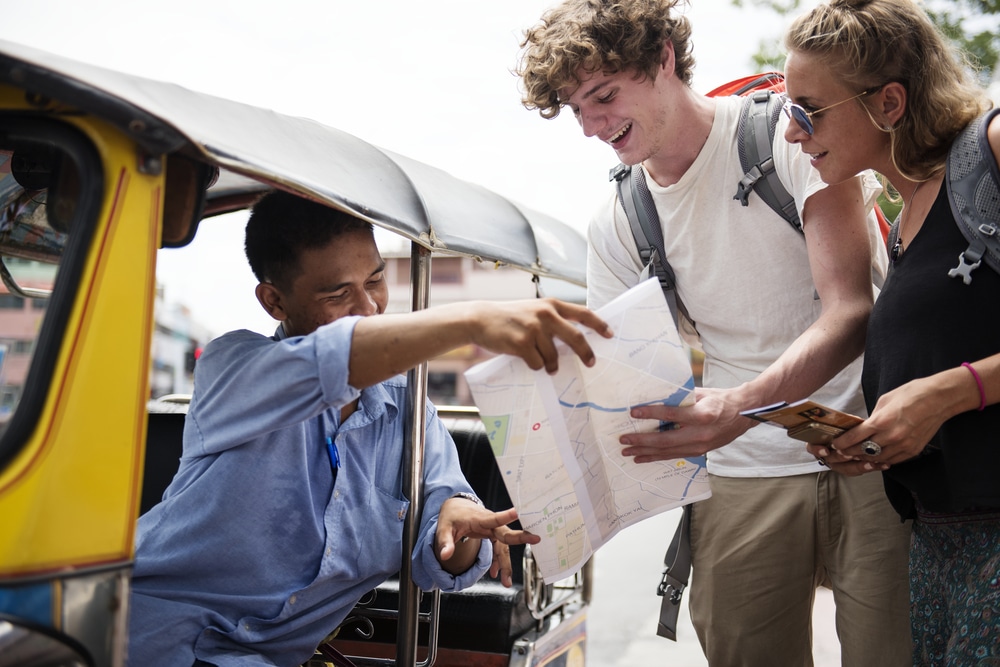
Où est… ? (Where is…?)
This is a phrase that you’ll need to use a lot in France, and it pays to memorize the names of a few places so you can get by if you’re stuck.
Here are some French phrases for travelers to build off of “où est.”
Où est…
l’hôtel ? (the hotel?)
la banque ? (the bank?)
l’aéroport ? (the airport?)
le guichet ? (the ticket window?)
la plage ? (the beach?)
Quel temps va-t-il faire aujourd’hui ? (What will the weather be like today?)
Don’t forget that much of the time, the weather in France is described using the verb faire .
Learning some French vocabulary for weather is a great idea before you venture out—being able to understand what sun and rain are in French will help you to listen out for all the right words.
Il fait beau aujourd’hui (It’s beautiful weather today)
Il pleut (It’s raining)
Il fait chaud (It’s hot)
Il fait froid (It’s cold)
Il fait soleil / Il y a du soleil (It’s sunny)
Il fait venteux / Il y a du vent (It’s windy)

Est-ce que vous pourriez prendre ma photo, s’il vous plaît ? (Could you take my photo, please?)
Everyone loves a souvenir, and it’s likely that you’ll take your camera along with you to capture precious memories. In touristy zones, natives are used to being asked to take photos, but if you’re going to do it, it’s especially nice to be able to inquire in French.
If there are a group of you, replace ma photo (my photo) with notre photo (our photo). And to be polite, start your request with excusez-moi monsieur/madame .
Addressing someone by the equivalent of “sir” or “madam” in French is generally expected, so if in doubt, err on the side of being over-polite—the person taking your photo is much more likely to accept your request!
Pouvez-vous m’appeler un taxi, s’il vous plaît ? (Can you call me a taxi, please ?)
Getting home in France when public transport has stopped running can be a real worry, and unless you’re right next to a taxi stand, it can be very difficult to find a cab. If you’re at a venue late, ask this question to one of the staff.
Staff are likely to have all the information about local transport and taxis and normally will be able to supply you with one in no time at all! As usual, address the person in the most polite way you can and thank them for their help.
Learning about other forms of transport will also help you to no end, especially when you’re searching for a way to get home.
Le bus (The bus)
Le train (The train)
Le bateau (The boat)
Le car (The coach)
La voiture (The car)
Pouvez-vous m’aider ? (Can you help me?)
In the unlikely scenario that you get into trouble when in France, it’s really important to have armed yourself with the right words to get out of a bind. Even just knowing this phrase is incredibly handy.
Of course, just because you need help doesn’t mean you’re in trouble—you might just need directions . The above phrase can be used in those scenarios, too, and is a great way to identify people who are able to speak French and who know their way around town.
Où est l’ambassade américaine ? (Where is the American Embassy?)
Again, travel French isn’t just about getting around, eating well and having fun. There are also French phrases to know in case of emergency.
If you run into trouble in France, one good address to have on hand is that of the American embassy . A stolen U.S. passport or ID card can be replaced at the embassy, and you might need their help if there is ever a political problem in France and you need to exit the country quickly.
That’s a rarity to be sure, but it’s better to be prepared while traveling!

You’ll likely benefit from some further directional guidance while traveling around France. These phrases will come in handy.
Où est le métro ? (Where is the metro?)
Où sont les taxis ? (Where are the taxis?)
Où est la sortie ? (Where is the exit?)
C’est près d’ici ? (Is it close by?)
C’est loin ? (Is it far?)
Est-ce que ce bus passe par… (Does this bus pass by…)
Emmenez-moi à cette adresse, s’il vous plaît. (Take me to this address, please.)
Use this polite phrase with your taxi driver before you hand over that crumpled sticky note with François’ address on it.
Je vous dois combien ? (How much do I owe you?)
After your chauffeur de taxi (taxi driver) has so graciously driven you to François’ place, you’ll have to pay up.
Puis-je avoir un plan de la ville, s’il vous plaît ? (Can I have a map of the city, please?)
Use this phrase when you roll up to the office de tourisme (tourist office). You can also ask for a public transit map specifically:
Puis-je avoir un plan du métro, s’il vous plaît ? (Can I have a metro map, please?)
Je cherche… (I am looking for…)
Je cherche is another handy French travel phrase, especially if you’re traveling for the first time in a French city.
Unlike in English, where we say “I am looking for …” the French don’t use a preposition (“for”) after the verb, and simply follow this phrase with what they’re searching for.
Je cherche…
le bus (the bus)
un taxi (a taxi)
les toilettes (the toilets)
l’hôpital (the hospital)
Je ne comprends pas. (I don’t understand.)
A necessity if you’re trying to make conversation with a native, je ne comprends pas will serve you well if you ever get stuck.
Often, French people are so pleased to find a foreigner who’s able to speak their language that they’ll get a little carried away and enthusiastically try to start a complex conversation. While situations like these are incredible if you’re a learner, they can also be very intimidating.
Don’t worry if you don’t understand. Simply excuse yourself, say that you don’t understand and if you would like to continue the conversation, try the following French phrase:
Pouvez-vous répéter, s’il vous plaît ? (Could you repeat that, please?)
Parlez plus lentement, s’il vous plaît. (Speak a little slower, please.)
For French learners, the coveted native speed of speaking can seem unattainable, and while you can learn to understand it over time, it does take a little adjusting to. If you’re speaking to a local and would like them to speak a little more slowly, it’s better to just ask them, rather than suffering in silence.
Saying parlez plus lentement, s’il vous plaît will let your speaking partner realize they might be going a little too fast for you, but that you would still like to continue.
If you’d like them to go back over something they’ve been talking about, you can again ask them to repeat themselves to have them re-cover a topic that might have gone over your head.
Don’t worry about seeming rude—French people are often willing to help learners with their language skills, and will likely have no problem adjusting their speed.

If you’re traveling in France, you’ll probably be doing some shopping while you’re there!
Je suis à la recherche d’un… (I’m looking for a…) A great line for engaging the chipper shop girl, practicing your French and finding gifts for the folks back home.
Non, je regarde pour l’instant. (No, I’m [just] looking for the moment.)
C’est pour… (It’s for…)
Combien ça coûte ? (How much does this cost?)
Puis-je commander cela sur l’Internet ? (Can I order this on the internet?)
Je voudrais payer en liquide / espèces. (I would like to pay in cash.)
Est-ce que vous acceptez les cartes étrangères ? (Do you accept foreign cards?)
Be aware that paying for items when abroad may not work the same way as at home.
If you’re in a smaller town in France especially, it’s always worth checking with hotels or shop owners if they accept foreign modes of transaction. Asking est-ce que vous acceptez les cartes étrangères ? will ensure that you don’t find yourself in any sticky payment situations down the line.
If you’re from North America, asking acceptez-vous les cartes sans puce ? (do you accept non-chip cards?) might be more to the point. Many North American cards don’t have chip-and-pin security, and some stores in France don’t have magnetic strip readers.
Generally, most tourist destinations will be equipped to deal with foreign credit cards, but if you’re ever not sure, it always pays to double check!
À quelle heure est-ce que cela ferme ? (What time does it close?)
Across France, especially in the summer months, it’s worth checking out closing times. To ask when a shop or attraction is closing, use this question.
On the other hand, to inquire when a place will be opening, ask à quelle heure est-ce que cela ouvre ? (what time does it open?). Both of these phrases are really essential when traveling, so make sure you learn them ahead of time!
And remember, French time works a little differently and is often given on a 24-hour cycle, so if someone responds with dix-sept heures (literally, “17 hours”), they mean 5 p.m.
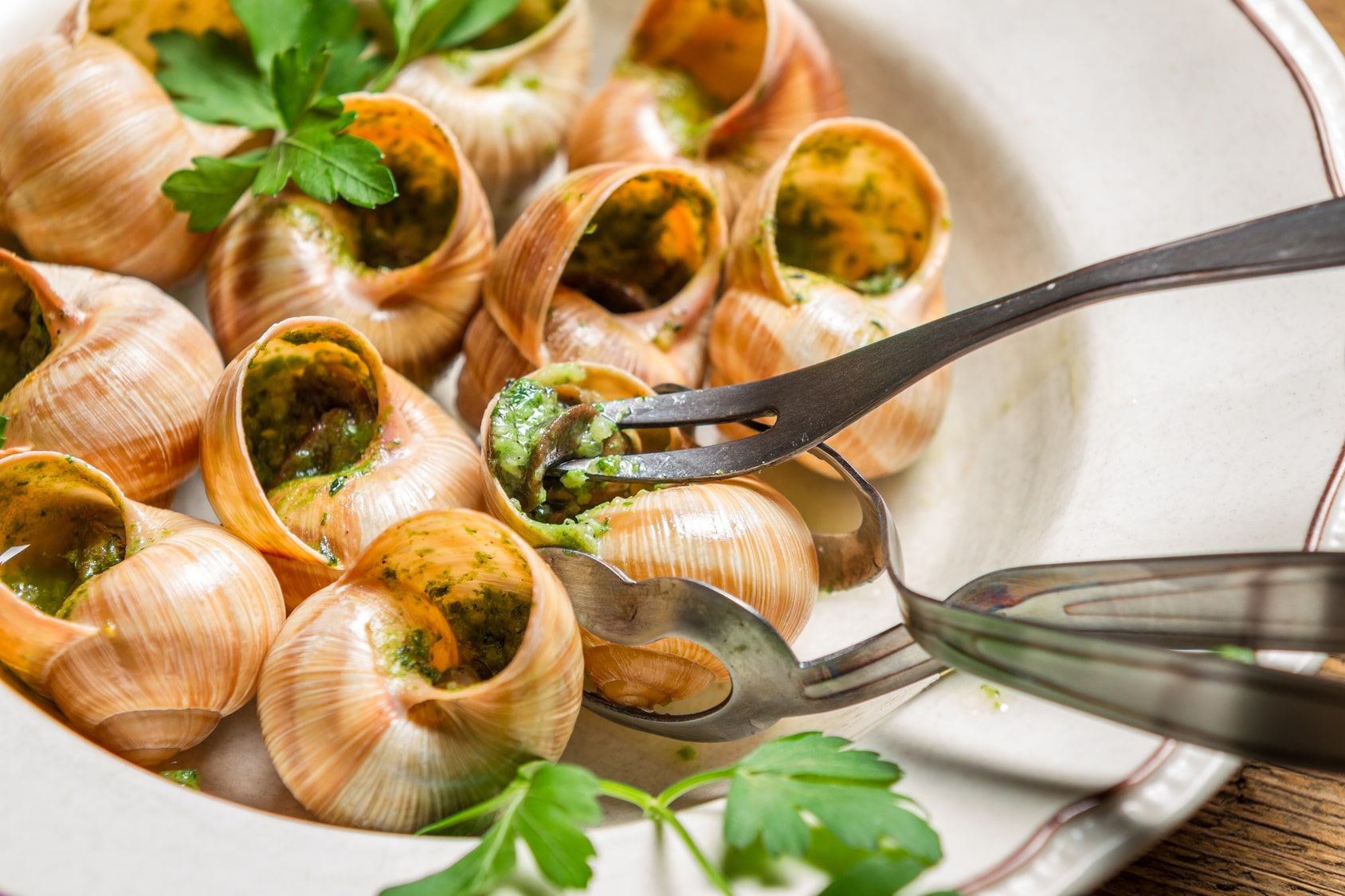
French cuisine is famous around the world, so what better place to try it than in its country of origin? These French phrases will help you make the most of dining in France.
Une table pour 4, s’il vous plaît. (A table for 4, please.
Le menu, s’il vous plaît. (The menu, please.)
La carte des vins, s’il vous plaît. (The wine menu, please.)
Est-ce que le service est compris ? (Is the tip included?)
C’est trop bon ! (This is so good!)
J’ai bien mangé. (I ate well/I’m full.)
Je suis répu / repue. (I’m satisfied/I’m full.) This one will really impress people. This is some real français soutenu (formal French) , and you’ll rarely hear a young French person say this.
On prend l’apéro ensemble ? (Let’s have an apéritif together?)
An apéritif is a beverage one drinks before eating—typically something alcoholic like whiskey, vodka or pastis , for example.
Je voudrais… (I would like…)
Je voudrais is likely to be a phrase that you’ll need to use very frequently—when ordering food , attending new places or just trying to buy something in a shop.
While most phrasebooks will contain the names of most foods and items that you would need to order, it’s worth remembering a few so that you don’t get stuck in a sticky situation! Here are a few you may want to commit to memory.
Je voudrais…
un café (a coffee)
une bière (a beer)
une baguette (a baguette)
de l’eau (some water)
l’addition (the bill)
À votre santé ! (To your health!)
Say this right before you clink glasses with your new French pals. Be sure to make eye contact while doing so .
You can also just say santé ! (health!). À la vôtre ! (to yours!) is also a good option when you’re with more than one person or having a tête-à-tête (one-on-one discussion) with a distinguished gentleperson.
À la tienne ! (to yours!) works for casual one-on-one scenarios. Tchin tchin ! (clink clink!) has the benefit of being pretty cute and onomatopoeic.
You’re sure to exude a certain je ne sais quoi (“I don’t know what”) as well as an ease with pronouns .

You’ve done the museums, the galleries, the restaurants, the cafés… time to party!
Ça te dit d’aller boire un verre ce soir ? (Want to go get a drink tonight?)
J’ai envie de faire la fête ! (I want to party!)
On s’installe là-bas ? (Let’s sit over there?)
Je voudrais une pinte de blonde / un verre de vin. (I would like a pint of light ale/glass of wine.)
On va prendre la bouteille. (We’ll take the bottle.)
On prend des shooters ! (We’re taking shots!)
Est-ce qu’il y a un after ? (Is there an after party?)
Je suis crevé / crevée, j’y vais. (I’m spent, I’m leaving.)
Rentrez-bien ! (Get home safely!) A good phrase to keep in your pocket when you’re leaving your party animal friends in the club.
Je me suis vraiment bien amusé / amusée. (I really enjoyed myself.) Did your new French pals take you on an exhilarating tour of the coins et recoins (nooks and crannies) of a charming neighborhood? Then let them know that you had fun!
Find a French phrasebook for travelers

Before you travel, you’re going to want to arm yourself with a few essentials, and at the top of your list should be a really great French phrasebook . Although I’ve just given you lots of helpful, common French travel phrases, it’s always good to be ready for any eventuality, and a phrasebook will act as a great backup.
One great phrasebooks for French learners are the “Collins French Phrasebook,” which contains a French dictionary for your convenience.

For more options, you’ll want to explore Lonely Planet to see what’s available. There are French phrasebooks for every corner of the French-speaking world, and some have additional features like accompanying audio files, travel guides or apps.
Research local customs
Wherever you go in France, you’ll find a whole host of things that make the area unique. Whether it’s local French cooking , events or linguistic differences, it pays to research the place you’re going and, if necessary, learn a few basic French phrases relating to whatever may be going on around you.

In Paris, for example, some museums and galleries are free to all on the first Sunday of the month—a deal worth taking full advantage of! If you want to check out the region to which you’re traveling, France.fr is a great place to do so.
And of course, your French phrasebooks or regional travel guides can offer you insight into customs, culture, etiquette and holidays.
Make a list of activities
Just getting to France may seem like a dream come true, but unless you have some idea of how you want to spend your time, it can pass you by in a haze.
Before you leave for your trip, try making a list of things you’d like to do. This way, you can adjust the phrases you learn accordingly and be ready to ask about certain exhibitions in the area or how to find a place to eat that serves a certain local dish you’d like to try.
Spontaneity is wonderful, but a little planning doesn’t hurt, either!
Use an immersion program
You can get used to hearing the French language before you leave your house with immersion programs. Using an immersion program at home is a good way to get used to the sounds and natural speed of the language. It’s also a way to hear turns of phrases , filler words and slang —basically, parts of the language that are rarely taught in textbooks. Learn these, and your French will sound much more natural.
Learn polite French terms of address
The French take manners very seriously, and if you’re meeting someone for the first time, or talking to a stranger, it’s important that you address them in the right way.
If you’re trying to attract the attention of someone who might be able to help you, say either “hello sir/madam” or “excuse me sir/madam” in French, as given above. Similarly, when you enter a shop, it’s always nice to greet the shopkeeper by saying hello or good morning, also as you learned above.

You can get a head start on polite conversation for practical, everyday matters with ed2go’s Beginning Conversational French course. This is a short online course that prepares you for communication in places like restaurants, hotels and other typical scenarios you may encounter on your travels.
There are also different terms of address in French, and depending on how well you know someone, you’ll have to address them in a certain way. For people you know, you can say tu (you) when talking to them. This can also be used for children and animals.
For strangers, figures of authority or your elders, you must use vous (you). This is a much more polite term of address, and expected when you haven’t gotten to know someone well yet.
If you’re struggling to know which one to use, always veer on the side of caution and use vous. The other person will tell you if they want you to say tu to them instead!
Traveling to France is a thrilling and eye-opening experience.
In order to get the most out of the trip, it’s a great idea for tourists and travelers to learn some basic French phrases and words ahead of time.
These French travel phrases will have your back throughout your trip!
FluentU has a wide variety of great content, like interviews, documentary excerpts and web series, as you can see here:

FluentU brings native French videos with reach. With interactive captions, you can tap on any word to see an image, definition and useful examples.

For example, if you tap on the word "crois," you'll see this:

Practice and reinforce all the vocabulary you've learned in a given video with learn mode. Swipe left or right to see more examples for the word you’re learning, and play the mini-games found in our dynamic flashcards, like "fill in the blank."

All throughout, FluentU tracks the vocabulary that you’re learning and uses this information to give you a totally personalized experience. It gives you extra practice with difficult words—and reminds you when it’s time to review what you’ve learned.
Start using the FluentU website on your computer or tablet or, better yet, download the FluentU app from the iTunes or Google Play store. Click here to take advantage of our current sale! (Expires at the end of this month.)
Enter your e-mail address to get your free PDF!
We hate SPAM and promise to keep your email address safe


60+ French Phrases for Travel You Need to Know 📚FREE Printable Cheat-Sheet

Order your petit-déjeuner (breakfast) or buy your billets (tickets) to the Louvre all in French! Here are the most useful French phrases for travel you need to know.
Learning some French will offer you further insight into the French culture, mentality, and way of life. The ability to speak even un peu français (a little bit of French) and avoid making these French faux pas will enhance your travel experience and open the doors to unique connections with the locals.
France is the world’s top tourist destination, attracting more than 79,5 million visitors a year! That’s why French is the next language in my travel phrase guide series. Not only that, but speaking French also comes in handy when travelling to Africa, Switzerland, Canada , Monaco, French Polynesia, the Seychelles amongst other places.
Why else should you learn French? Well, it makes learning other languages, especially Romance languages like Spanish , Italian , Portuguese and Romanian much easier.
Don't let the learning stop here. Download your free PDF guide with 60+ French travel phrases . Includes English and French translations with pronunciation guide. Apprenons ensemble! (Let's learn together!)
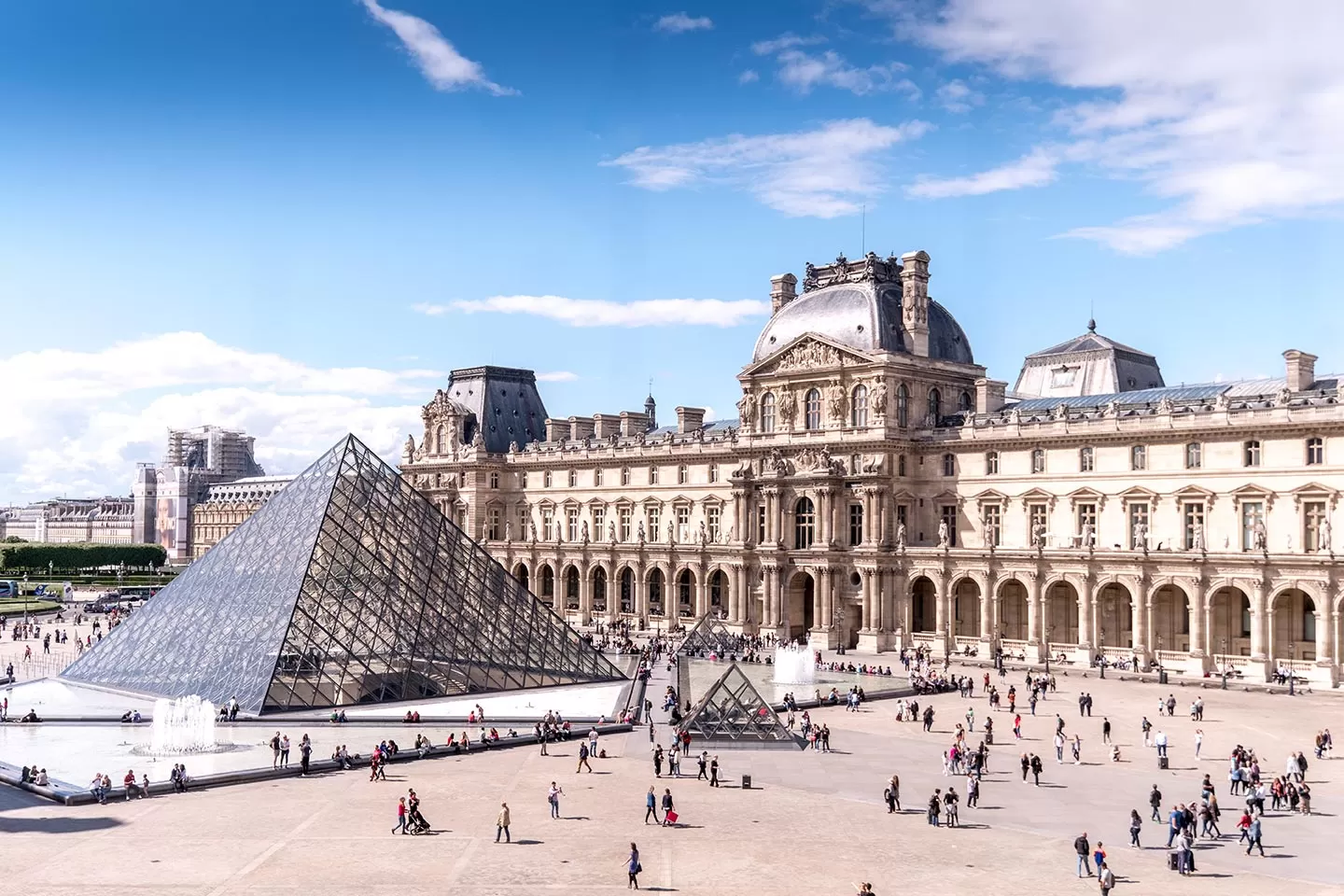
Travelling to France? Don’t be treated like a tourist! Live your best travel experiences and learn France for less than the cost of eating at a tourist trap restaurant or a taxi driver who has “taken you for a ride”. In addition to my free French travel phrase guide , I’ve made it even easier for you to master the French language so you can create lifelong memories as you mingle with locals , get local tips , avoid tourist traps , and make new friends . Join my popular French course here.
Let’s take a quick look at the French language so you’re a bit more clued up on its origin, use, and vocabulary. I hope you enjoy this post as much as I enjoyed bringing it together. If you have any requests for other languages, let me know in the comments section!
Where is French spoken?

French is the third most spoken language in Europe, after German and English and has official-language status in 29 countries, including: Belgium , Benin, Burkina Faso, Burundi, Cameroon, Canada , Chad, the Ivory Coast, the Democratic Republic of the Congo, Djibouti, Equatorial Guinea, France , Haiti, Luxembourg, Madagascar, Mali, Monaco, Niger, Rwanda, Senegal, Seychelles, Switzerland , Togo and Vanuatu. French is even one of six official languages of the United Nations.
It seems like nearly everyone wants to learn French, it’s the only language, alongside English, that is taught in every country in the world!
And the best way to learn it? Well, France operates the biggest international network of cultural institutes, which run French-language courses close to a million learners. My two favourite ways to learn French is by attending language classes – so I’m not only held accountable but also for the social aspect – and going on language holiday too!
A Brief History of the French Language
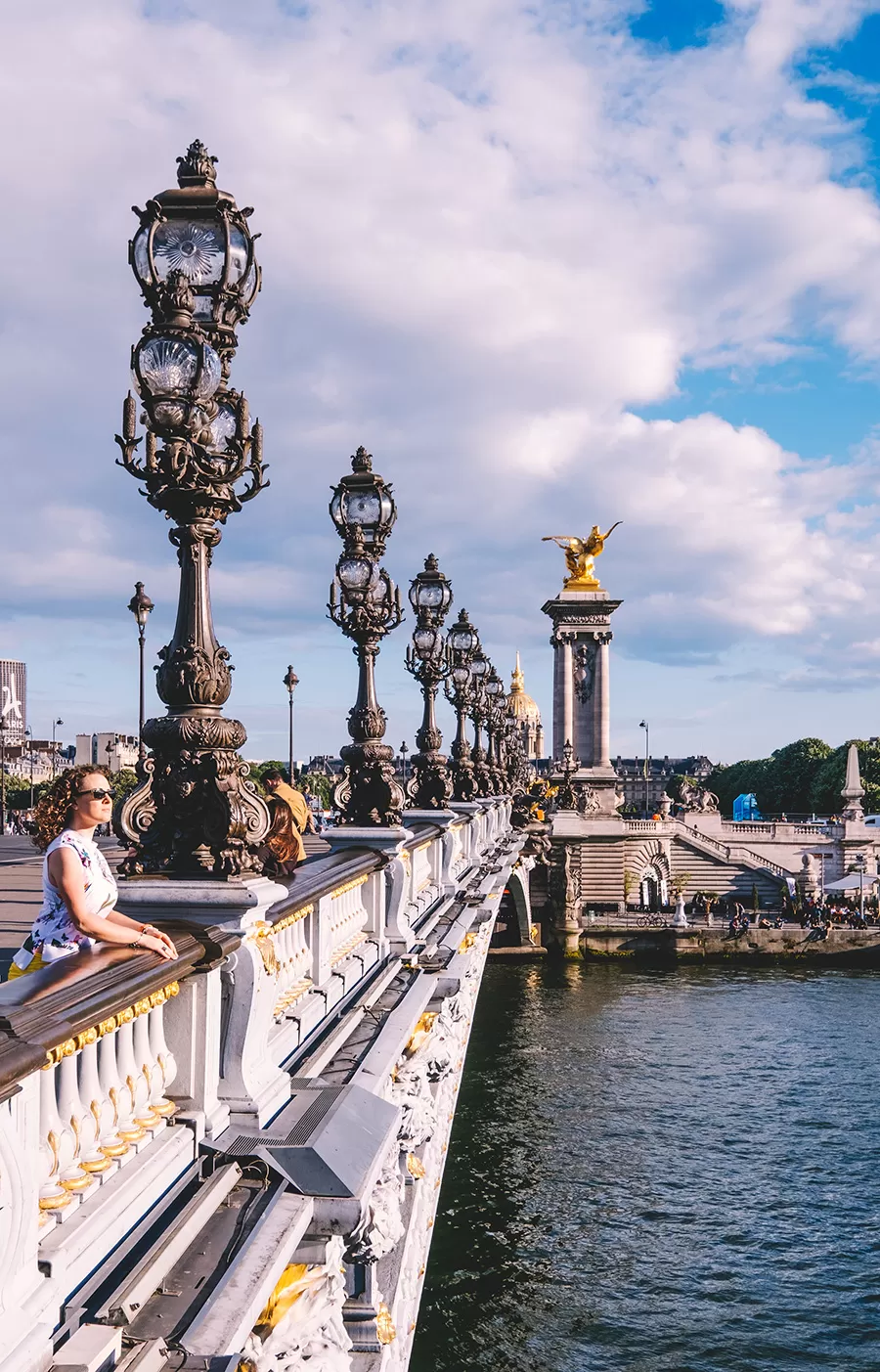
The French and English languages have a pretty mixed-up history. Following the Norman Conquest of 1066, Norman French was adopted as the language of power on the British Isles.
For the next 400 years, French was the language of the nobility and of most official documents. King Henry V put a stop to that when he went to war with France, but because the two languages existed in parallel for so long, the English language is peppered with words of French origin, many of which can be traced back to French roots. This means that you actually already know a lot of French, even if you don’t think you do.
Now for the tricky stuff!
French Pronunciation Tips

There is a total of 26 letters in the French alphabet. Standard French contains 13 oral vowels and up to 4 nasal vowels, but there are 5 additional accented letters that can be applied to change the sound of a letter.
Here are some helpful pronunciation tips:
Using Liaisons
One of the fundamental rules of pronouncing French (and many other Latin-based languages) is that everything has to flow. That’s one of the reasons why French sounds so beautiful.
If you’re speaking French correctly, everything should sound like a continuous melody.
That’s where liaisons come in.
Liaisons are a phonetic link between two words that may sound awkward if left unconnected.
Let’s take a look at some examples where they are used when speaking:
- After pronouns e.g. vous avez sounds like vooz-ah-vey not voo ah-vey
- Numbers and nouns e.g. deux amis sounds like derz-ah-mee not der ah-me
- One syllable prepositions e.g chez eux sounds like shez-uur not sheh uur
And liaisons that are forbidden when speaking:
- When using full names e.g.
- After et (and)
Liaisons may seem complicated at first, but they will become easier the more you listen to spoken French. After a while, you’ll automatically be able to notice where a liaison is needed (and where it isn’t) and how to make it sound natural when speaking.
What Not to Pronounce in French
Much like English, the French language isn’t written phonetically. The same sound can be represented by several different combinations of letters, and there are many cases of silent French letters. Two of the most well known are the silent “e” and the silent “h.”
The Silent “e”
The letter “e” is often silent in French, especially at the end of a word. Here are some examples:
Rue (road/street) is pronounced roo not roo-ee and inacceptable (unacceptable) is pronounced an-ah-sep-tah-bil not an-ah-sep-tah-ble
Of course, there are exceptions when it comes to masculine and feminine adjectives and nouns.
In the case of feminine adjectives and nouns, this typically means that the final consonant of the masculine form will now be pronounced. So, the masculine ouvert , meaning open in the masculine form and pronounced oo-ver , will become ouverte in the feminine form and pronounced oo-vert . The ‘ e ’ makes the final letter sounded.
The Final Consonant
As you’ve probably already noticed, there are a tonne of French letters that simply aren’t pronounced at the end of words. Don’t worry, you’ll get used to it!
In French, silent letters, or lettres muettes , have rules and exceptions just like many other linguistic concepts.
In general, the final consonants of a word are usually silent in French except in some cases of the letters c, f, l or r .
Just remember this simple rule, the consonants in the word ‘ careful ’ are always pronounced.
For example,
Avec (with) is pronounced ah-ve k
Cinq (five) is pronounced saan k
Hiver (winter) is pronounced ee-ve r
The general rule regarding French word endings is that when in doubt, you probably don’t pronounce it. But, French is full of exceptions!
The Infamous “r”
For many English speakers, the French “r” can be a source of frustration. To pronounce it, you’ll need to use your throat and imagine you’re trying to gargle. The French “r” is pronounced in the same place as the English “k”, but with your throat closed.
The Silent “h”
As you’ve probably noticed from every French speaker’s failed attempt to say the word “hamburger” in English, the “h” in French is a silent letter no matter where it’s located in a word.
The only exception to this is when the preceding letter is “c,” in which case the “ch” combination makes a “sh” sound or “k” sound.
Here are a few examples of the silent “h”:
Le haricot vert (French bean) is pronounced leh ah-ree-coh ver
Huit (eight) is pronounced weet
Hiver (winter) is pronounced ee-ver
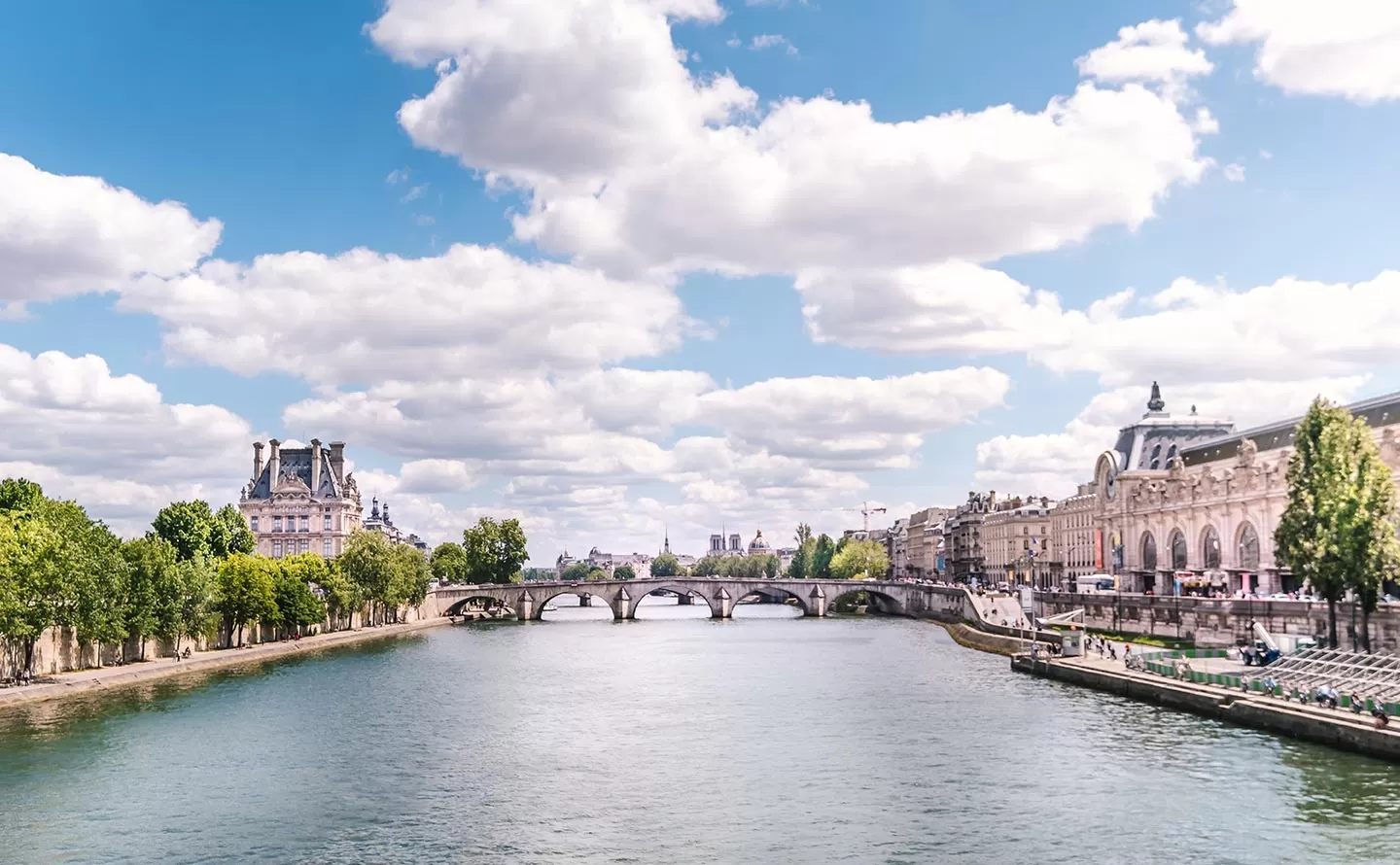
Admittedly there are a few finicky grammar rules to learn, but generally speaking, English grammar corresponds relatively closely to French grammar.
Consider words in English that end with – ible and -able , these are the same in French, only the pronunciation changes. So, the French word ‘possible’ sounds like poss-ee-bleh and ‘comfortable’ becomes kom-for-tah-bleh .
Then we have English words ending in -ent and -ant which also come from French and have the same spelling and the same meaning. So, the word, différent sounds like diff-er-ohnt and important sounds like ahm-poor-tahnt . The ‘t’ at the end is just slightly sounded.
Had enough? Ok, one more! Words in English ending in -ary l ike contrary become -aire in French. So, ‘contrary’ becomes contraire and sounds like kon-trair . There are so many rules like this, so you can see just how easy learning French can be.
Here are top 10 French phrases for travel you SHOULD Know
Top french phrases for travellers.
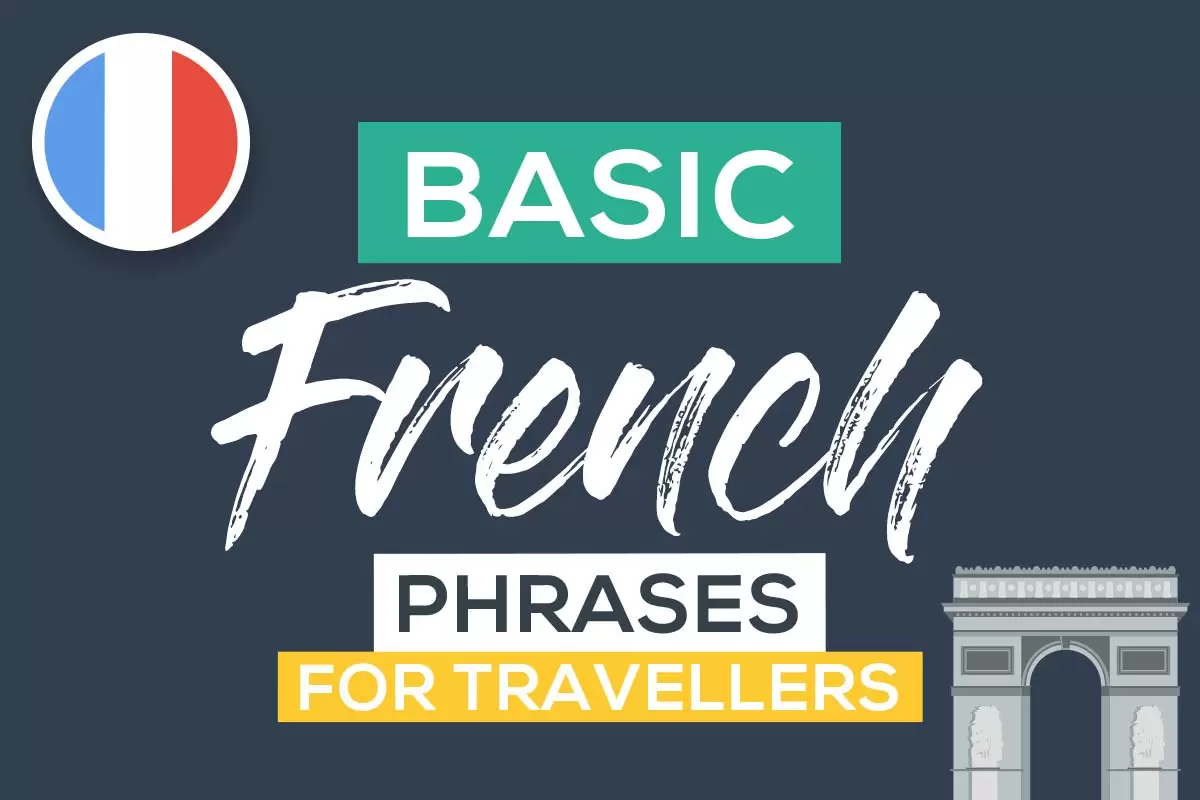
Want the infographic to take with you? Scroll to the bottom of the page.
Greetings Essentials Questions Eating Out Getting Around Numbers Days Emergencies
**There are a few places that use unique words for the numbers 70 ( septante ) and 90 ( nonante ), such as Belgium and Switzerland. With the numbers 80 to 89, combine the number 4, the number 20, and the ones.
For example, in French 80 is four 20s, 81 is four 20s plus 1, and so forth. (Unlike most French-speaking countries, Switzerland actually has a word for the number 80. It’s huitante .)
Want more? Learn French with me, with Intrepid French!
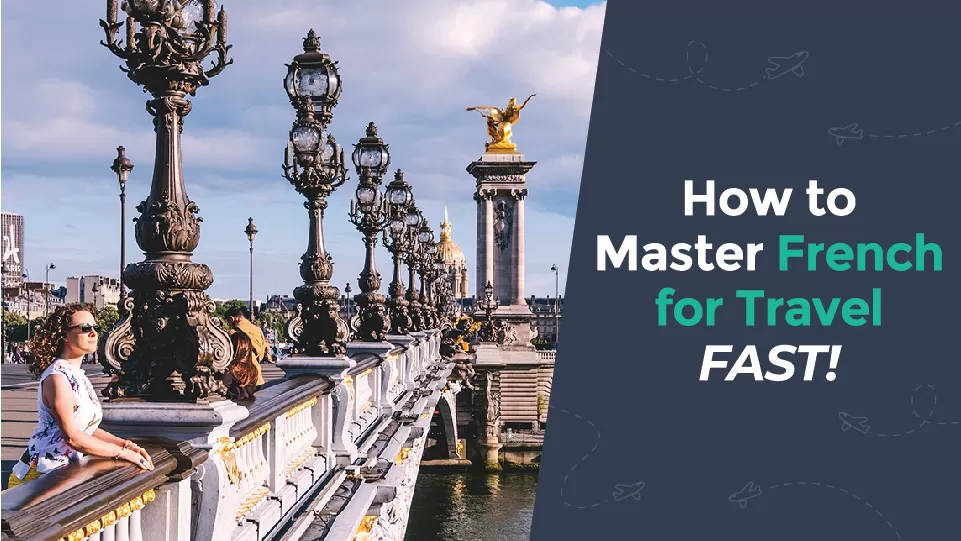
Here’s what my students are saying:

Loved it, loved it, loved it. I’ve been trying to learn languages using various language learning apps for years now and although I know random words I feel no more confident in actually speaking the language than I was when I started.” – Basil Pereira
Click here more details and get instant access!
Have a laugh with these funny French expressions
Like it? Pin or download this French travel phrase guide

Like it? Pin it for later!
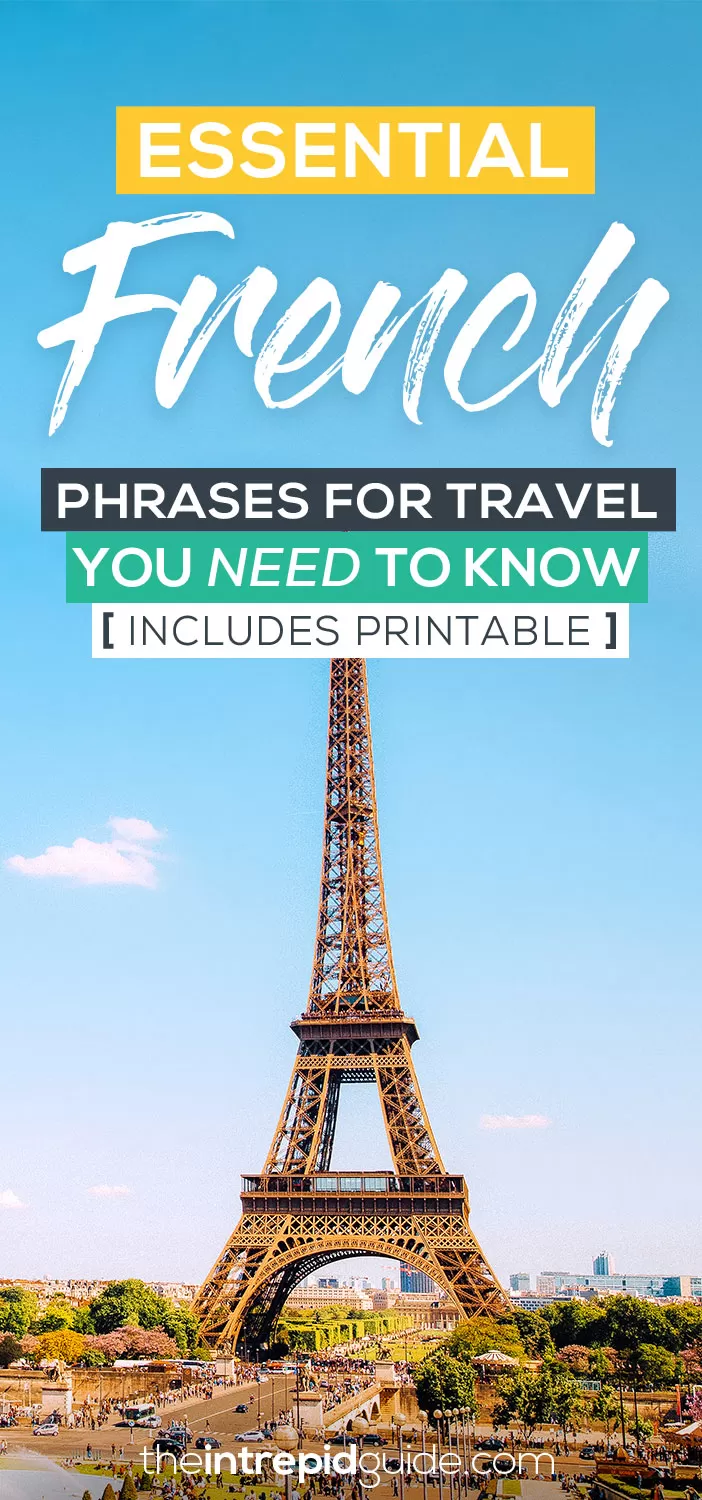
Learning French? Check out these French language guides
- Top 10 French Phrases You Should NEVER Say [& What to Use Instead]
- How to Sound More French: Top 10 French Phrases the French Love Saying
- How a ‘potato’ improved my French pronunciation
- 25 Funny French Idioms Translated Literally
- 22 Most Common French Grammar Mistakes [& How to Avoid Them]
Want to know more about learning languages? Start here!
- 6 Language Learning Tips: How to Learn a Language from Home
- What Type of Language Learner Are You? Your 4-Step Personalised Learning Plan
- 15 Top Language Learning Resources You Should Use
- 44 Best Movies on Disney Plus for Learning Languages
- 13 Ways to Seamlessly Integrate Language Learning into Your Daily Life
- 10 Pro Tips: How to Learn a Language with a Full-Time Job
- 7 Reasons Why You Should Go on a Language Holiday
- Essential Travel Phrases: How to be Travel Fluent in 10 Simple Steps
- 23 Cool Gift for Language Learners They Will Actually Use and Love
- How to Learn Your First Foreign Language in 8 Simple Steps: A Beginner’s Guide
- 11 Life-Changing Reasons Why You Should Learn a Language
- 42 beautiful Inspirational Quotes for Language Learners
- Language learning tips: 11 Polyglots Reveal The Secrets of Their Success
- Top 10 Best Ways to Learn a Language Better and Faster
- How Many Languages are there in the World?
Don’t miss my France Travel Guides
- How to Spend 4 Days in Paris: Ultimate First Timer’s Guide to Paris
- Where to Stay in Paris: A Fairytale Stay at Hotel Trianon Rive Gauche [Hotel Review]
- Where to Stay in Paris: A Decadent Stay at Hôtel Thérèse [Hotel Review]
Over to you!
Which of these French phrases are the most useful? What other languages would you like a travel phrase guide for? Have you been to a French-speaking country? Let me know using the comments section below or join me on social media to start a conversation.
Thanks for reading and I hope you enjoyed this post.
Like what you see? Subscribe using the form below to have all of my posts delivered directly to your email.
Michele creates language learning guides and courses for travel. What separates her from other instructors is her ability to explain complex grammar in a no-nonsense, straightforward manner using her unique 80/20 method. Get her free guide 9 reasons you’re not fluent…YET & how to fix it! Planning a trip? Learn the local language with her 80/20 method for less than the cost of eating at a tourist trap restaurant Start learning today!
Blond or Blonde: Why Does Grammatical Gender in English Still Exist?
How to sound more french: top 10 french phrases you should use.
This is great. I took years of French when in school, 40-years ago and now want to re-learn and be able to get by when traveling. Merci
Hi! (Sorry for the Failures, I don’t speak english very well because I am french) My Name is Salomé and I am from France. I felt random on your Website and I watched you tables and the picture called ” French travel Cheat sheet “. What you’re doing is awesome because you help people open us to the World. I am proud of what you do. I want to help because I am a native speaker of French not of all the French (Canada, Belgium..) but from France. Salomé
Hey Michele, love the article, love the guide. I think there are some mistakes on the French spelling and pronuciation for the word Right.
Right =droite drrrwa (with the funny r for the French). Apart from that, what a precious website!! Well done!
Hi Monique, thank you for correcting this typo, I’ve just fixed it now :)
Hey Michele
This is so cool. Thanks for sharing it. I was I Paris about a month ago and these would have come in very handy. Keep up the good work.
Merci Au revour
Thanks Basil, I’m so glad you enjoyed this post. I hope you’ll find it useful for future travels in Francophone countries :)
Leave a Comment Cancel Reply
Save my name, email, and website in this browser for the next time I comment.
This site uses Akismet to reduce spam. Learn how your comment data is processed .
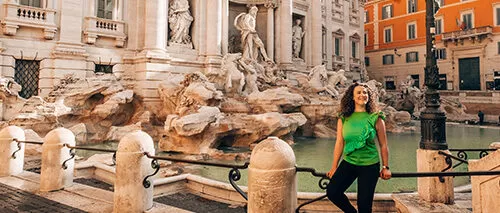
If you don't know where you are , how do you know where you're going? Find out how well you know Italian grammar today!

IMAGES
VIDEO
COMMENTS
Going to France, or another French speaking country? Learn these basic French phrases before you travel, and you’ll be all set.
108 French Travel Phrases. Having essential French travel phrases on hand can totally transform your trip. If you meet people, get lost or just need to ask a local some questions, these expressions and sayings will help you out in most scenarios and make your time in France truly memorable.
Order your 'petit-déjeuner' (breakfast) or buy your 'billets' (tickets) with these essential French phrases for travel [PLUS printable]
Discover the key to unlocking a more immersive travel experience in France with our complete guide, featuring over 30 basic French phrases for travel. Whether it's greeting locals, navigating your way through picturesque streets, ordering culinary delights, or shopping for unique souvenirs.
Master the basics of French conversation with essential phrases for travel. From greetings to ordering food and asking for help, learn the key phrases to help you confidently navigate France.
Asking for directions. Dining. Accommodations. Sightseeing and attractions. Shopping. Transportation. Beach and recreation. Emergencies. Health and wellness. Planning a trip? Check out our basic French phrases guide with more essentials to help you connect with new people, navigate public transportation, and more.